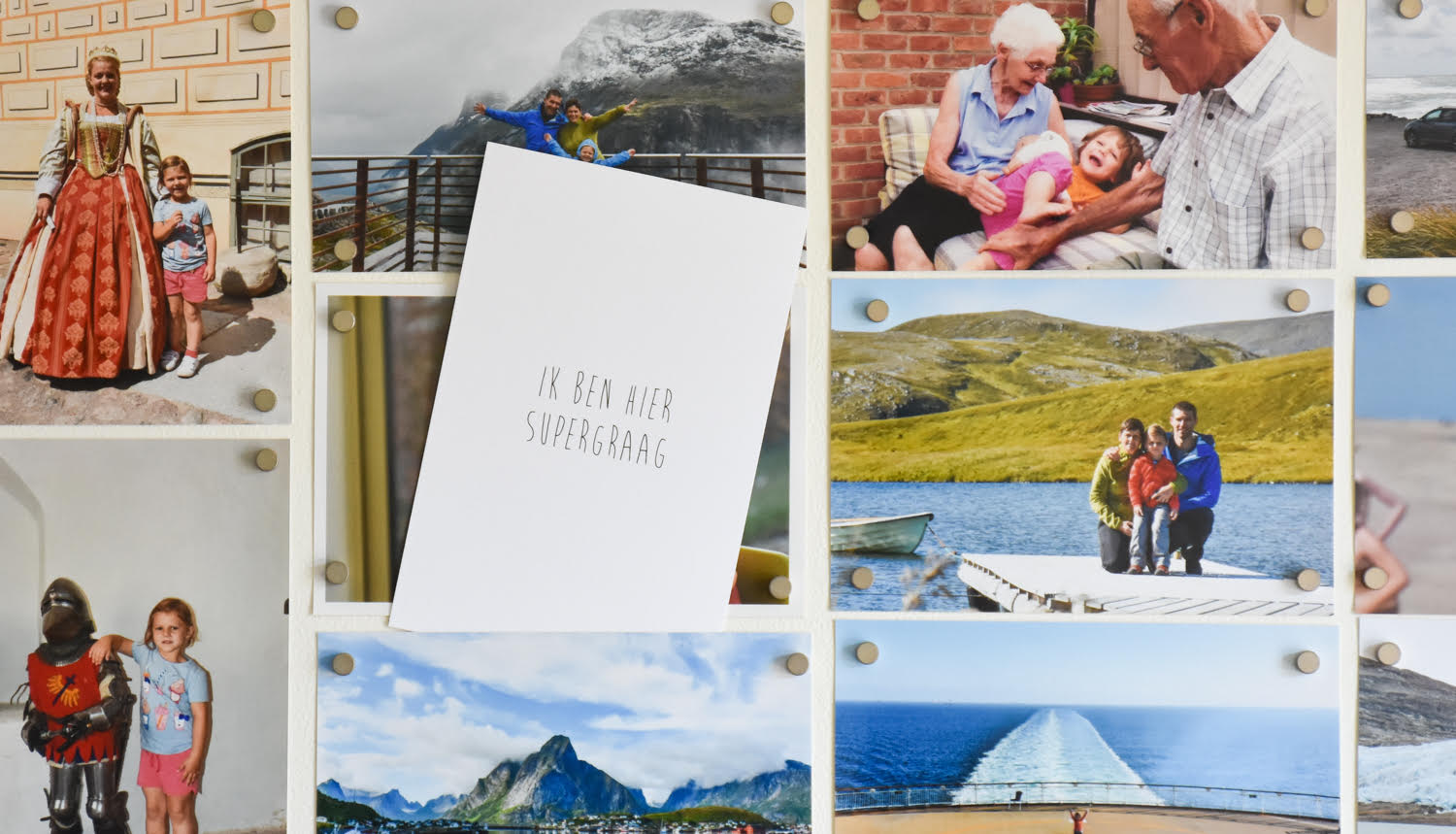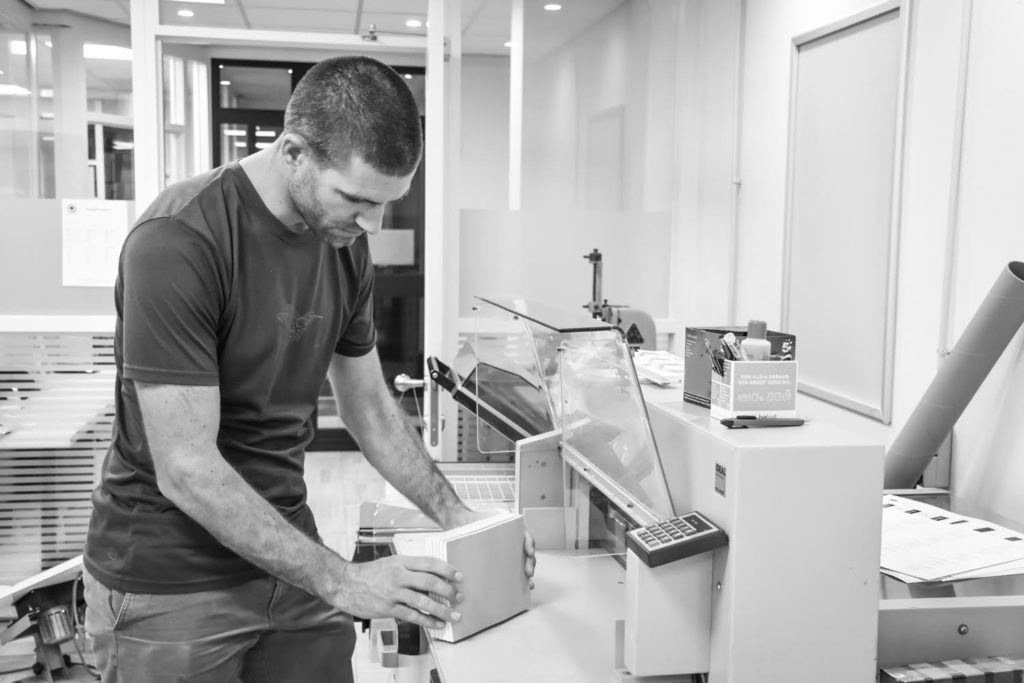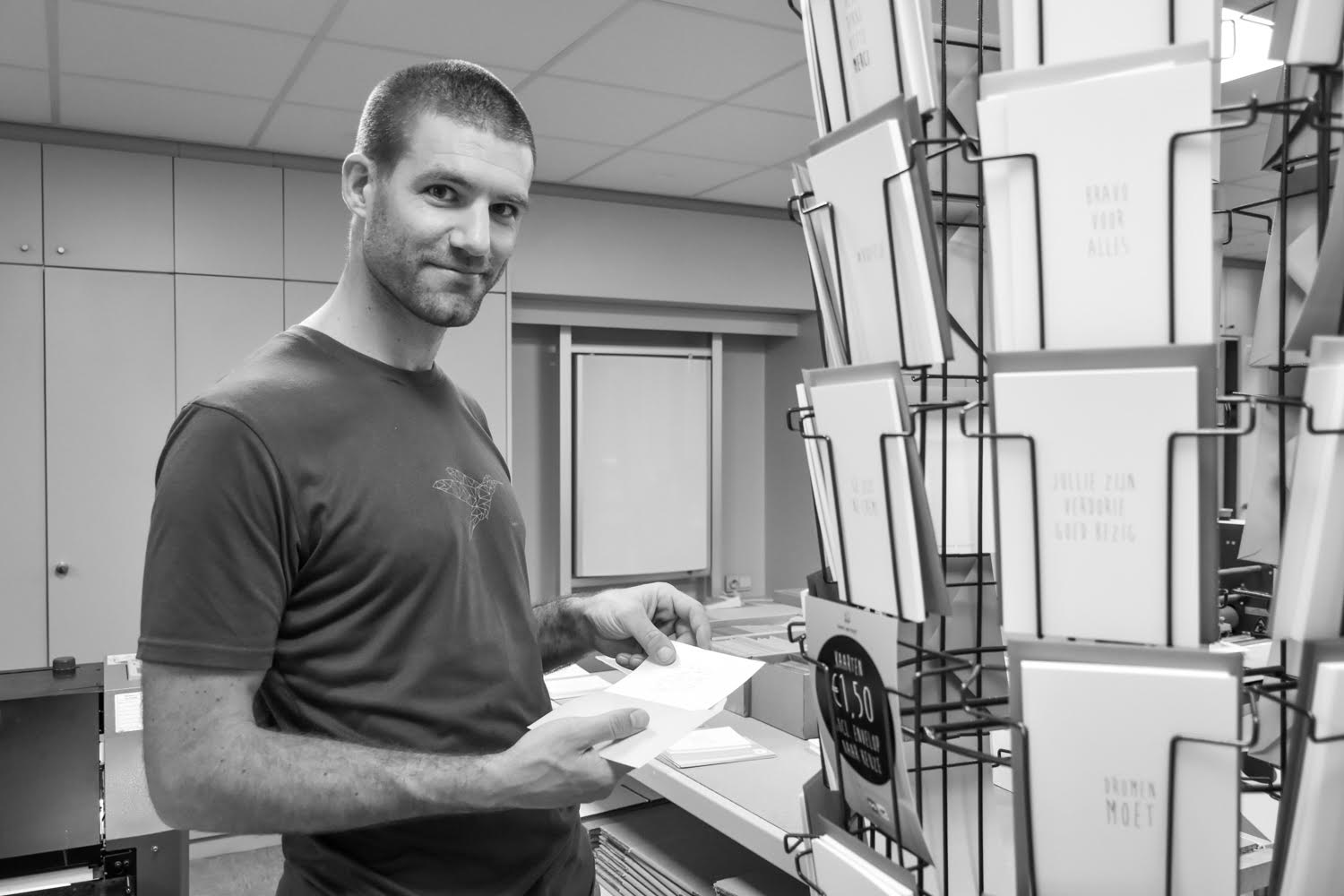When husband and wife duo Jesse Vanden Broeck and Julie Deleersnyder first launched their small business “Kaart van Troje” two years ago, they were hoping to extend the magic of friendly and familial gatherings into the future with modern, witty greeting cards people could hide in each other’s homes during social visits.
The concept is hinted at in the name, which can be more or less translated as “Trojan card.”
In the famous story about the Trojan War, Greek soldiers smuggled themselves into the city of Troy by hiding inside a huge, wooden horse that was presented to their enemies as a gift.
Like the Trojan horse of lore, the cards that take their namesake from it are intended to be smuggled into the homes of unsuspecting friends and loved ones. But when the hosts find the sneaky card later, the surprise is a pleasant one- a reminder of the special time they shared together.
“Sometimes it takes hours, or even days or weeks or months before they find your card,” explains Vanden Broeck, depending on how well it was hidden. “The cards talk about how much fun you had, how great it was. When they find it, it will remind them of the lovely time you had.”
It’s a clever twist on the old tradition of handwritten letters, but when coronavirus hit, the lockdowns began, and social gatherings were banned, the couple-turned-business-partners were worried. It’s hard to sneak a greeting card into Grandma’s house when you’re not allowed to get within a metre of her.
But the worries turned out to be for naught.
“The moment corona kicked in, we found there were a lot of people trying to communicate with cards instead of visiting in person,” Vanden Broeck said. “You can't pop in, but you can send a card instead. That's what a lot of people are doing in this moment we’re in.”
Related News
So the pair changed up their strategy with the creation of coronavirus-themed greeting cards, or “anti-isolation” cards.
With phrases like “Because I love you so much, you won’t see me for a while,” and “to do nothing is to do something,” the cards reference the importance of social distancing and isolation in stopping the spread of Covid-19, and are meant to foster a sense of togetherness during the pandemic.
New Year’s cards were also adapted for coronavirus, expressing sentiments like “Would it not have been better to stay in bed this year?” and “Shoutout to corona for keeping the drunk uncle at bay.”
View this post on Instagram
"I’m not mad at 2020, just disappointed." One positive side to this lockdown? A sea of time to write New Year cards, of course.
“The text on our cards isn’t traditional,” Vanden Broeck said. “Most cards you can find in stores are made to focus on what’s happening, and not on the message.”
He explained that when he and his wife looked for birthday cards for a nephew two or three years ago, they discovered they could find a hundred that said “happy birthday.” They felt that such event-specific messages left the card-giver with little else to add in the card itself.
“So we tried to focus our own cards on what you would really say, instead of the reason why you’re sending the card,” explained Vanden Broeck.
Most of the cards they make are in the Dutch language, and feature clever wordplay.
While the pandemic has had a tremendous negative effect on many small businesses (444 businesses declared bankruptcy in Belgium last month alone, and that number is thought to be lower as a result of government measures and reduced staffing for bankruptcy courts), others have found a way to adjust their products or services to reflect the time- or in the case of Vanden Broeck and Deleersnyder, memorialise it with some encouragement and a bit of humor.

© Kaart van Troje


